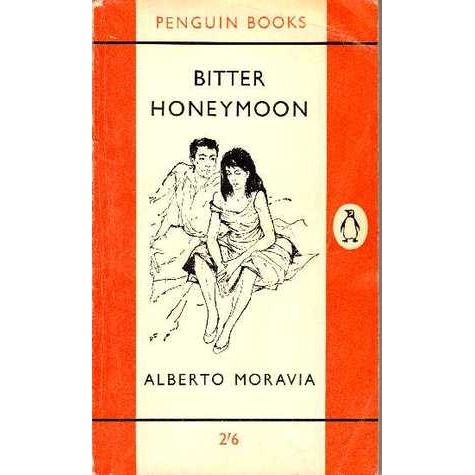Moravia’s story’s “Back to the Sea” [Ritorno al mare] is about a picnic is without a shred of joy. It’s partly about gender relations and a metaphor for post-war Italy in the guise of a nightmare merénda,
In the summer of 1945, Lorenzo, an unregenerate Fascist, takes his estranged wife, unnamed, to a picnic at the beach. They have an open marriage, and he wants to renew his rekindle his relationship. She hates him, but Lorenzo is too self-absorbed to understand her animosity. During the war, Lorenzo had abandoned her and worked assiduously for the Fascists. Still, now facing retribution by the Italian government and the Allies, he seeks to restore his relationship with her.
On the beach, Lorenzo tries to be charming. He suggests a walk, and when she says it’s not safe, Lorenzo replies: “‘I’ve completely lost my head,’ he thought coolly, and he started to go towards a little heap of sand which had been formed round some abandoned and rusty object. ‘What are you doing?’ he heard his wife ask angrily. ‘Where are you going? There are mines about.’ ‘What do I care about mines,’ he answered with a shrug. He would have liked to add, ‘or if I’m blown up,’ but he was silent. . .”
Lorenzo’s picnic shows his influence during a time of deprivation and rationing. His cook packs hardboiled eggs, meat, buttered bread and rolls, fried cutlets, rare roast beef, and wine. He eats voraciously, but she does not, her face all the while displaying an “aggressive hard look.”
When she wants to leave, Lorenzo gets angry. He brushes aside his role as a Fascist. But when rehashing her many love affairs, his lust rises, and he tries to rape her: “He felt a violent desire to upset her balance. With one thrust of his whole body, he threw himself on her legs and toppled her over onto the grass. She fell headlong and, startled into fury, she said: ‘Leave me alone. What’s the matter with you.”
When Lorenzo relents, the wife escapes to the car and drives back to Rome. Chastened, he tries to smooth his humiliation by walking along the edge of the surf. He takes off his shoes and socks, rolls his trousers, and begins walking with his eyes facing down as if searching for something. What he finds is death, for as he steps into the surf, he detonates an unexploded mine:
“The torrent of seaweed and sand which soared into the air with a thundering echo darkened his eyes to the sky for a moment as he fell back in the whirlpool of the explosion. He thought he was falling headlong forever in a perpetual din of cataracts. But silence and immobility followed. He lay supine in the water; the noise and movement of the sea were singularly sweet and distant under a sky again visible. The water pulled him under by the hair; head down and feet up, his body moved with the passage of a
wave, and he saw a large red stain hastening towards the shore with the rings of foam and the black debris. Then another wave came and pulled him under, and he closed his eyes.
As a metaphor, the story compares this marriage to degeneration during the Mussolini dictatorship, the Fascists’ denigration of human rights, and alliance with Adolph Hitler and the Nazi regime. The picnic on the ruined beach strewn with detritus of war, barbed wire, pylons, and unexploded ordnance, represents the sad state of affairs and the unexploded ordinance of the precarious future. Lorenzo’s death is a sign of retribution; the wife’s escape is a hope for the end of a new Italy.
Featured Image: Charles Mozley. Bitter Honeymoon. London: Penguin, 1961. Mozley’s cover art describes one of the many unhappy couples in the stories comprising Bitter Honeymoon.
See Alberto Moravia. Bitter Honeymoon and Other Stories (I racconti). Milano: Gruppo Editoriale Fabbri, 1952; Bitter Honeymoon and Other Stories, translated by Bernard Wall. New York: Farrar, Straus, and Cudahy; Lily Tuck. Woman of Rome: A Life of Elsa Morante. New York, HarperCollins, 2008. Italian text: https://books.google.com/books?id=8eU8Z0jEFooC&q=merienda#v=onepage&q=mare&f=false

